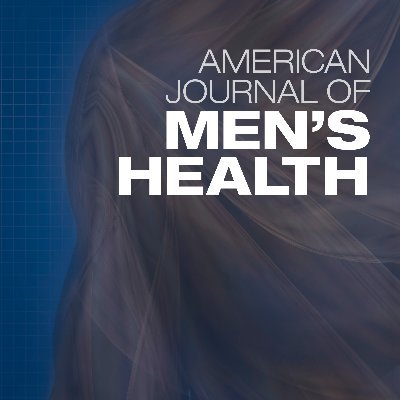Impact and Evaluation – Research Projects, Exhibitions and Publications
This is where we proudly showcase the meaningful projects, exhibitions, and publications that reflect our commitment to advancing mental health awareness and support.
Mind in Bexley Article published in the American Journal of Men’s Health.
 Our article titled Trusted Community Spaces for Suicide Prevention: Evaluating the Ambassador Barbers, Salons, and Tattoo Studios Project in the London Borough of Bexley, UK which has been published in the American Journal of Men’s Health. This research evaluates our innovative initiative that leverages community spaces, specifically Bexley barbershops, hair salons, and tattoo studios, as trusted environments for promoting mental health and suicide prevention.
Our article titled Trusted Community Spaces for Suicide Prevention: Evaluating the Ambassador Barbers, Salons, and Tattoo Studios Project in the London Borough of Bexley, UK which has been published in the American Journal of Men’s Health. This research evaluates our innovative initiative that leverages community spaces, specifically Bexley barbershops, hair salons, and tattoo studios, as trusted environments for promoting mental health and suicide prevention.
By integrating mental health awareness into these familiar settings, the project aims to reduce stigma and provide support to individuals who may not otherwise seek help. The findings highlight the effectiveness of utilising community-based approaches to enhance mental health outreach and provide critical support in suicide prevention efforts.
Music is medicine for the mind: the Revival social enterprise cafe as a community model for mental health
An article has been published in Mental Health and Social Inclusion (2025) 29 (7): 61–71.
It explores how Revival, Mind in Bexley and East Kent’s community-led social enterprise cafe in Whitstable, supports mental health and inclusion through creative, non-clinical approaches.
Based on 18 months of ethnographic research, it shows how atmosphere, participation and especially music foster belonging, emotional safety and everyday recovery. Three mechanisms underpin this: relational knowledge developed through empathy and shared experience; uncertainty as a creative, adaptive force; and a collective intelligence of care emerging from routine, mutual support.
Although based on a single site, the study demonstrates how community enterprises can complement statutory services, redistribute expertise and strengthen local wellbeing systems.
Grounding ethical governance: Co-produced, community-based research ethics in qualitative and oral history practice with vulnerable groups
Our latest paper is now published in the Research Ethics journal and introduces a co-produced, community-based model of ethical governance for qualitative and oral history research based on the model at Mind. .
This paper explores how ethical governance can be grounded in community relationships rather than distant institutions, showing how co-produced, locally embedded ethics boards protect participants and enhance trust in qualitative research.
Improving Physical Health-Care Equity for People with Severe Mental Illness: Evaluation of a Co-produced Community Initiative in Bexley, UK
In a recent article, CEO David Palmer discusses a critical evaluation of a community initiative aimed at addressing the significant physical health disparities faced by individuals with severe mental illness (SMI) in Bexley, UK. This initiative focuses on increasing the uptake of annual physical health checks (PHCs) for this vulnerable population, who often experience preventable health issues and premature mortality.
The evaluation employed qualitative feedback from various sources, including practitioner training webinars and outreach to residents with SMI, to identify barriers and enablers affecting health care access. Key findings revealed that training enhanced practitioners’ confidence and empathy, while service-user barriers included fear and mistrust of clinical environments. A community-based pilot program demonstrated promising results, increasing PHC coverage from 43% to 63% in just three months.
Despite the study’s limitations, such as its small scale and reliance on self-reported data, it highlights the potential of co-produced, community-led initiatives to foster inclusive care. The Bexley model serves as a replicable framework that emphasises the importance of ongoing training, collaboration with voluntary-sector partners, and the integration of lived experiences into health-care delivery.
Ultimately, this evaluation illustrates how tailored, community-based approaches can improve health equity for individuals with SMI, advocating for sustained investment in person-centered social infrastructure and coordinated care to effectively reduce health disparities.
My day to day life is awesome!” Continuity and innovation in Mind in Bexley’s services during COVID-19 lockdowns
David Palmer Corresponding Author; Lucy Williams; Anne-Marie Briscombe; Daniel Pittaway
Author & Article Information
Journal of Public Mental Health (2025)
This paper reports on an oral history project run by Mind in Bexley (MiB) during the COVID-19 lockdowns of 2020 and 2021. The purpose of the study and this paper is to create a record of the resilience of MiB’s clients and to discuss the lasting legacy of the digital services and community networks built during the pandemic.
Design/methodology/approach
The qualitative research design was co-produced with service users and actively engaged service users, caregivers and individuals with lived experience in the design and process. Mind in Bexley collected contributions for an exhibition and conducted 18 online, qualitative interviews exploring the impact of lockdown and COVID-19 and Mind in Bexley’s response.
Findings
The changes forced by the COVID-19 lockdowns encouraged creativity, responsive care, built new communities and supported new forms of engagement. Online, telemental services allowed Mind in Bexley to provide individual support in new and efficient ways. Through the project, the authors have gained a much-needed, person-centred view of how people with mental health diagnoses draw on their self-knowledge and understanding of recovery to build positive coping strategies.
Originality/value
This work’s original contribution: challenges perceptions of the vulnerability of people living with mental health illnesses during COVID-19; uses a co-produced methodology combining interviews and creative contributions; has lessons for services seeking to improve social support and resilience, digital (telemental) service provision and service continuity.
Mind in Bexley Carers Service Evaluation
Mind in Bexley is pleased to present the evaluation of the Carers in Mind service, funded by the London Borough of Bexley’s Prevention and Early Intervention (PEI) programme.
Conducted by Dr. David Palmer, this evaluation highlights the experiences of mental health carers, examining the support they receive and how their caregiving roles impact their wellbeing.
Through interviews with 15 carers, the research identifies their pathways to support, the challenges they encounter, and the importance of Mind in Bexley community resources in enhancing their carers experience.
Carers Exhibition: “Navigating the Journeys of Unpaid Mental Health Carers”
The Mind in Bexley Carers Exhibition is grounded in the oral testimonies of residents in Bexley who provide care for individuals experiencing mental distress. The project was initiated and co-produced by carers working with the mental health charity Mind in Bexley, reflecting a collaborative approach that prioritises the voices and experiences of those directly involved in caregiving.
Supporting Individuals Bereaved by Suicide Study
By exploring the lived experiences of those bereaved by suicide, this study reveals the multifaceted nature of grief, the nuances of emotional support, and the varied coping strategies individuals employ.
Drawing on indepth interviews, the analysis uncovers the influences that shape the bereavement experience and highlights the significant impact of the support provided by the service.
Personal Health Budgets
The NHS Long Term Plan published in January 2019 made a clear commitment to expand personalised care and Personal Health Budgets, with a specific expectation that these will be offered within mental health services as part of plans for up to 200,000 people to benefit by 2023/24. One of the key drivers behind Personal Health Budgets is giving people greater choice and control over the support they access to manage their mental health as this increases their prospects of recovery.
The South London Mental Health & Community Partnership (SLP) and South East London CCG Personalisation lead commissioned Mind in Bexley to develop a programme of engagement to draw on the expertise of people with lived experience of mental health difficulties regarding Personal Health Budgets.
The research provides valuable information for commissioners and service providers in designing a pathway to support the uptake of Personal Health Budgets across the SLP and thereby increasing recovery outcomes, choice and control.
‘Care for me at home’ Domiciliary care study
Mind in Bexley with Healthwatch Bexley completed an oral history research study which explores the impact of Home (Domiciliary) care on the wellbeing and quality of life of services users in Bexley. The research findings on the quality of Home Care services will generate awareness and help to improve provision in the Borough. The findings have been reported to the Commissioners, Health and Wellbeing Board and Healthwatch England.
Beat Project
Beat 720p from Global Stories on Vimeo.
An evaluation of the impact that Peer Support has on participants who accessed the BEAT project in the London Borough of Bexley
Beat Project Evaluation Report
Beat Project Booklet
Social Prescribing
Social Prescribing in Bexley Pilot Evaluation Report
Mind have received funding to undertake a research/needs assessment and signposting and awareness raising project with young migrants who have claimed asylum as children and who have now turned 18. This group faces multiple deprivations because of their disrupted childhood, their often traumatic experiences prior to arriving in the UK, their status as care leavers and as migrants in the UK. We will undertake interviews (n=15), run workshops (n=5) to explore mental health needs, develop an exhibition to raise public/professional awareness of this groups mental well-being, explore peer support initiatives and signpost if appropriate to support.
Seeking Safety: Immigration Reporting (Film)
‘Seeking Safety: Immigration Reporting’ is part of a longer film about young asylum seekers in Kent. It focuses on one element of their experience as Care Leavers without secure immigration status in the UK. The film shows a young man reporting to Becket House, an Immigration Reporting Office at London Bridge. Young people seeking asylum in the UK usually enter the care of local authority social services. They are treated as children in care until they reach adulthood but can lose entitlement to care leaver’s support and to all welfare benefits, education and the right to work if they are refused refugee status or another form of international protection. Young care leavers face forced return to countries they fled from as children.
Reporting, or signing as many people call it, refers to the obligation placed on people with insecure immigration status to report, on a regular basis, to the Immigration authorities. Signing demonstrates that they are complying with the Home Office’s conditions on their stay in the UK but is a form of surveillance experienced as punishment by those who undergo it. While reporting, migrants can be detained for deportation so it is a very stressful experience for asylum seekers who fear return to countries of origin. Many people reporting have been doing so for months or years and many have families in the UK.
The young man portrayed in this film is still in the UK waiting for the result of his appeal against a negative asylum decision.
‘Seeking Safety’ was directed by Jess Dadds. It was funded by Mind in Bexley and made with the help of Kent Refugee Action Network
The mental wellbeing of young former unaccompanied asylum seeking children in East Kent – Final Report
Exhibition ‘Seeking safety’ – The mental health of care leavers refused asylum and living in East Kent, UK.
Previous Research Papers
A selection of our previous research is available to download
Article based on the Minding Histories Oral History Project, published in the Journal of Family and Community History
Mind in Bexley’s paper ‘Getting to know you’: reflections on a specialist independent mental health advocacy service for Bexley and Bromley residents in forensic settings published in Mental Health Review.
Moving Stories – Health Trainers
Research into Childrens CBT by Mind in Belxey
No one knows like we do’: the narratives of mental health service users trained as researchers
With Carers in Mind



